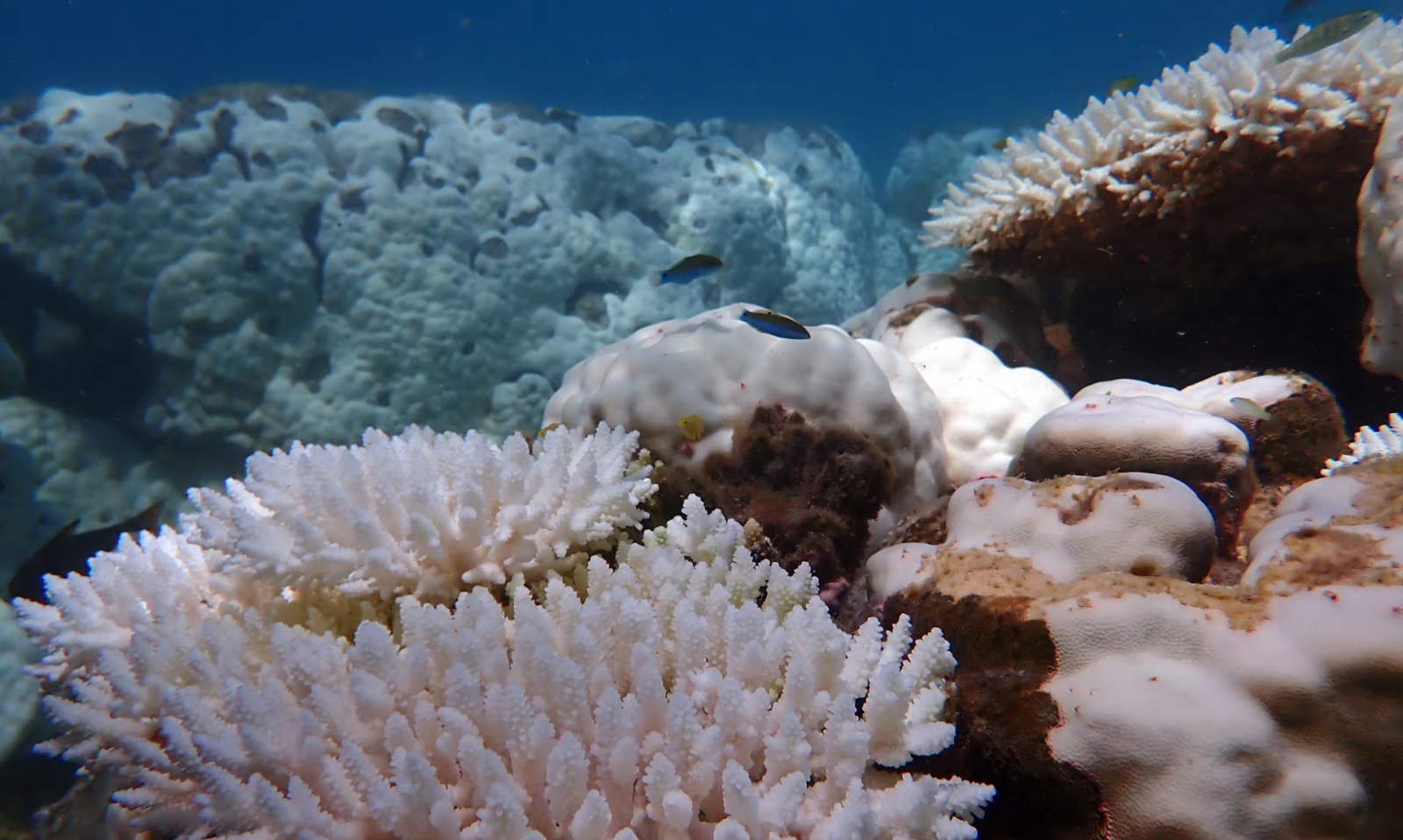
Researchers monitoring the reefs report extensive bleaching caused by extreme marine heatwaves linked to global warming. The Great Barrier Reef is seeing bleaching from Townsville up to Cape York, covering roughly 1,000 km, while Ningaloo has recorded its highest heat stress levels ever.
Dr. Zoe Richards, a coral scientist at Curtin University, observed severe bleaching in Ningaloo's shallow waters, with up to 90% of corals affected, including centuries-old species. Other reefs across Western Australia, including Kimberley, Rowley Shoals, and Exmouth Gulf, are also suffering from significant heat stress.
Corals bleach when ocean temperatures rise beyond their tolerance, expelling the algae they rely on for color and nutrients. While some corals can recover, severe bleaching weakens them, making reproduction and disease resistance more difficult. Scientists use "Degree Heating Weeks" (DHW) to measure accumulated heat stress, with corals typically beginning to bleach at 4DHW and severe mortality occurring around 8DHW. Ningaloo has recorded levels as high as 16DHW—the highest on record.
The Great Barrier Reef Marine Park Authority's aerial surveys found moderate to severe bleaching across northern reefs, with in-water assessments confirming bleaching in 24 of 30 surveyed locations. The most affected areas, particularly in the far north, have experienced heat stress levels between 6 and 13DHW, posing a serious risk to coral survival.
Repeated bleaching events, combined with extreme weather such as cyclones and flooding, leave little time for corals to recover. Northern parts of the Great Barrier Reef have also been impacted by floodwaters carrying sediment and nutrients, which further stress marine ecosystems.
Marine conservation experts warn that continued global warming will only exacerbate these crises. With fossil fuel expansion still underway, scientists stress that urgent climate action is needed to prevent further destruction.
"This is exactly what scientists have been warning about for decades," said Paul Gamblin, CEO of the Australian Marine Conservation Society. "If we don't act now, we risk losing these incredible ecosystems forever."